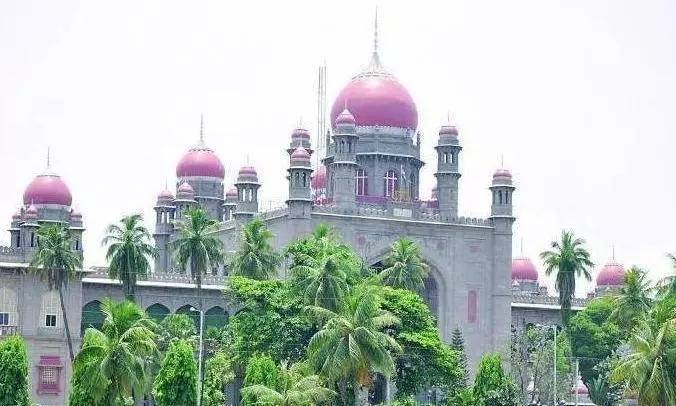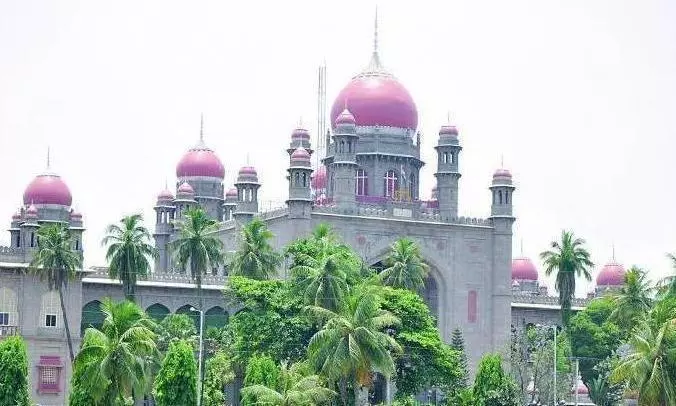
Hyderabad: Justice M.G. Priyadarshini of the Telangana High Court remanded to the endowments tribunal, claims of 16 pujaris as hereditary pujaris of Sri Chennakesava Swamy temple and Anjaneya Swamy temple at Kodair near Kurnool.
T.N Pradeep Kumar and his brother Ramakrishna Murthy moved the tribunal seeking a declaration that they are hereditary pujaris and trustees and entitled to receive emoluments and honorarium like Dhupa Deepa Naivedyam scheme (DDNS) and others attached to the temple. According to the petitioners, the subject temple is a very small but ancient temple in existence since the days of the Vijayanagara dynasty with an annual income that was less then`10,000. The ancestors of the applicants were recognised as hereditary pujaris and trustees of the temple. Their great-grandfather had in 1939 addressed a letter to the chief engineer of the Nizam government under the capacity of muttawali wherein, it was appraised that there was no revenue to the temple, and it is very much necessary for its reconstruction. It was in a dilapidated condition. However, when there was no reply for that letter, it was renovated with his personal resources. The office of the pujariship and trusteeship of the subject temple is hereditary in nature, which is vested with their family. Earlier, their ancestors were in the administration of the temple as pujaris-cum-trustees and at present they are performing the rituals in a similar capacity and the temple has remained exclusively in their hands all these decades. The endowment department stated the application was not maintainable before the tribunal for want of jurisdiction of this tribunal to entertain the application like that of applicants as such, the allotment of beneficiaries under DDNS can be decided only by a commissioner of endowments, who will issue a notification calling eligible candidates to apply. If any candidate is found eligible then the candidate shall be given the benefit of that scheme. The applicants are seeking declaration as hereditary pujaris and trustees of the subject temple, whereas as per the Act, 30/87 and its allied rules, it is not possible. There is an express circular issued by the commissioner of endowments, wherein it is said that a person cannot be considered as both-trustee and hereditary pujari in any temple. The applicants are not having any official declarations from the competent authorities of the endowments tribunal to declare them as hereditary pujaris-cum-founder trustees of the subject temple. Faulting the approach of the tribunal, Justice Priyadarshini said that on the one hand the tribunal opined that it has no jurisdiction to entertain the applicant, while on the other hand mentioned that the commissioner of endowments was the appropriate authority to identify the hereditary archaka-cum-trustee under the Act. Further, the tribunal observed that a person cannot be so appointed and in such circumstances it should not have observed that the commissioner of endowments was the rightful authority. In these circumstances, the judge said “this court is of the considered view that the tribunal has passed the impugned order without considering the evidence in its proper perspective and thereby there is a need to interfere with the findings of the tribunal.”
The judge further pointed out by the date of filing the claim application, the tribunal was constituted and as such it ought not to have observed in the impugned order that the tribunal was not empowered to deal with case under Section 87 of the Act. The judge made it clear that the temple shall decide the matter in accordance with law uninfluenced by any of the comments or remarks made by this court in this judgment and shall hear afresh by giving opportunity to both sides to put forth their respective contentions.
HC calls for compliance report on para-medical staff
A two-judge panel of the Telangana High Court directed the state to file a compliance report qua facilities and filling up the medical and para-medical staff in government hospitals. The panel, comprising Chief Justice Alok Aradhe and Justice J. Sreenivas Rao, was dealing with a PIL filed by K. Akhil Sri Guru Teja, president of Help the People Charitable Trust. The petitioner alleged that the state was not providing adequate facilities and not filling the medical and para-medical staff vacancies in government hospitals. The petitioner stated that such an action of the state was contrary to the judgment of the Supreme Court and also in noncompliance of the Indian Public Health Standards, 2022 wherein it pertains to establishing district and area hospitals, community health centres, PHCs and other government hospitals. Counsel representing the government sought time to appraise the court with regard to the facilities that are available. The panel, while considering the same, directed the state to file a compliance report within a week. The matter will now be heard on October 23.
Chess player moves HC for engineering seat
The Telangana High Court will examine the legality of actions of the Jawaharlal Nehru Technological University (JNTU) and Telangana Council of Higher Education in endorsing as ineligible, the candidature of a chess player for admission into an engineering course under the sports quota. Justice T. Vinod Kumar took on file a writ plea filed by M. Sreeshwan, challenging the decision of the respondent authorities that deemed him ineligible for admission under the sports quota. The petitioner applied for admission during the Eapcet 2024 process, asserting his eligibility under the sports quota due to his participation in national and international competitions. His application was rejected on the ground that he did not meet the prescribed five-year eligibility criteria. The petitioner argued that his participation in events in 2019 fell within the required period but was still unfairly rejected, as the authorities misinterpreted the guidelines. On behalf of the Sports Authority of Telangana State (SATS), it was contended that the rejection was due to lack of supporting lower-level competitions within the five-year window, as per Clause 5(a) of the GO. On a previous occasion, the judge observed that the relevant clause did not explicitly mandate lower-level competitions within the specified period, and thus the rejection of petitioner’s application appeared unjustified. Accordingly, the judge granted interim relief by directing the authorities to consider the petitioner’s admission under the sports quota.
